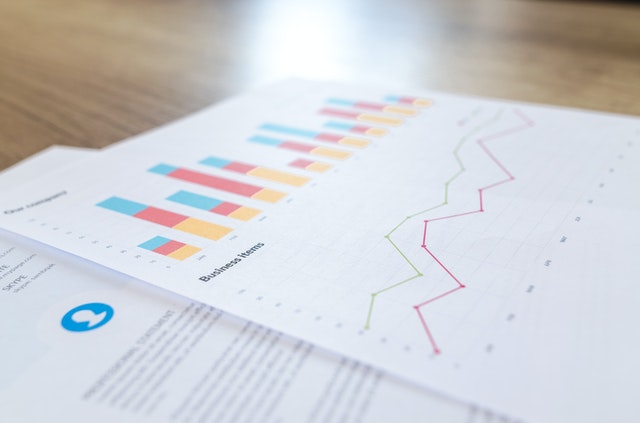Are you wondering how to become a CFA, you’ve undoubtedly recognized that it’s a wonderful way to distinguish oneself in the financial business. The charter will not only increase your employment opportunities but will also provide you with worldwide recognition and real-world experience that will help you better serve your clients for the rest of your career.
For many investment professionals, becoming a charter holder is a watershed moment that demonstrates a thorough knowledge of sophisticated investment research and real-world portfolio management abilities. The journey to becoming a CFA charterholder is difficult, but it may lead to new opportunities in global finance.
This tutorial describes how to become a CFA, the requirements for the CFA test as well as some useful tips for you. Keep reading the full steps, we have already covered everything about the steps to get a CFA certificate for you.
And our free CFA Level 1 Mock Exam will help you to pass the exam with a high score.
What does a CFA do?
A CFA is a certified financial analyst who has received certification from the CFA Institute, a non-profit professional organization. Because of its emphasis on analysis, investing expertise, and ethics, the CFA certificate is widely considered the leading credential for investment professionals across the world.
The CFA Institute’s member database lists all professionals who have been admitted into the CFA charter with their contact information, making it easier for people, businesses, and other institutions to reach them. Better work prospects, increased earning potential, and differentiation among colleagues in the financial profession are some of the other advantages of being a CFA charterholder.
Though this is not a career path for everyone, it is useful for those who want to stand out in their area and network with other experts and possible employers.
A CFA works as a certified investment professional who advises people, firms, and other organizations on investment strategies and portfolio management. Institutional investing businesses, broker-dealers, insurance companies, pension funds, banks, and colleges are among places where these individuals can work.
The CFA credential is only provided to financial professionals who have met the CFA Institute’s standards. Some of the world’s major investment firms, such as JP Morgan, Goldman Sachs, UBS, and Morgan Stanley, employ CFA members.
How To Become A CFA with 5 Steps?

CFA certification is a challenging process that requires a lot of education, experience, and passing an exam. There are three levels of exams in this category.
Though every professional’s journey becoming a CFA is different, the following are the most common procedures to take:
- Enroll in the Certified Financial Analyst (CFA) program
- Pass the CFA exams
- Obtain employment experience that qualifies you
- Send in your letters of recommendation
- Make an application to become a CFA.
Step 1: Enroll in the Certified Financial Analyst (CFA) program
To begin, applicants must fulfill one of the following requirements for CFA mentioned below in order to register for the Level I exam:
- Having a bachelor’s degree
- Within 11 months following graduation, enroll as an undergraduate student
- Have acquired a total of 4,000 hours of professional job experience and/or higher education over a period of at least three years.
The CFA charter is a globally recognized credential that opens doors to opportunities all around the world. Individuals who live in specific countries that are subject to US sanctions are not eligible to take the CFA test.
Requirements for Education
Bachelor’s degree
Completed a bachelor’s degree program or an equivalent program and got a college/university diploma. Consult your institution or university if you’re not sure if your program is equivalent.
Undergraduate student
For your bachelor’s degree or similar program, your test window must be 11 months or less before your graduation month. Keep in mind that you must complete your degree program before taking the Level II test.
Professional Requirements
Have a minimum of 4,000 hours of work experience and/or higher education that was obtained over a three-year period and completed before registering for the Level I test. There can’t be any overlap between schooling and professional job experience dates. Assume that higher education requires 1,000 hours per year if you have a combination of job experience and higher education to meet the necessary hours and years.
Professional employment experience does not have to be tied to investments. Paid internships and article ships are accepted. Work experience in your own or family business qualifies only if it is the professional experience for which you are paid.
What does it mean to have professional job experience? Work experience in a professional setting necessitates specialized knowledge, education, or advanced abilities. Professional job experience necessitates the use of higher-level judgment and management skills, such as:
- Teamwork and leadership
- Business communications
- Problem-solving and critical thinking
- Time management
- Professional judgment
- Skills in analysis
- Adaptability
Candidates who apply to the CFA Program without having completed a bachelor’s degree must honestly assess whether their professional job experience has prepared them for the huge volume and depth of study required by the CFA Program.
Other requirements
Candidates must additionally have an international travel passport, be able to take the tests in English, fulfill the professional conduct admission standards, and reside in a participating country in addition to these requirements.
Step 2: Pass the CFA exams

Passing all three levels of the CFA examinations in succession is the next step toward becoming a CFA. Ethical and professional standards, economics, equity investments, fixed income, and portfolio management are among the primary themes and topics addressed in these tests. Each test concentrates on a different aspect of investing:
- Level I: Examines investing instruments and assesses your understanding of ethical and professional principles.
- Level II: Concentrates on asset valuation, putting your ability to apply standards to real-world scenarios to the test.
- Level III: Concentrates on portfolio management, assessing your ability to implement portfolio management and compliance requirements.
In 2022, there are some changes to CFA Level 1 exam format. Make sure that you grasp all of this information to 100% prepare for your coming exam!
CFA exam structure
| SECTION | FORMAT | TIME |
|---|---|---|
| Level I | 180 multiple-choice questions | Two 135-minute sessions |
| Level II | Vignettes with 88 accompanying multiple-choice questions | Two sessions divided into two hours and 12 minutes each |
| Level III | Vignettes with accompanying multiple-choice and essay questions | Two sessions divided into two hours and 12 minutes each |
Scoring the exam
The exam’s multiple-choice sections are graded by machines. The Level III exam’s essay questions are graded by teams of CFA charterholders utilizing CFA Institute rules. The grading of 10% of the multiple-choice questions on the other test levels is also double-checked by chartered financial analysts.
Following the assessment of the essays, the CFA team compares responses, re-rating questions if they differ. The CFA Institute has a conference at the end of this process to determine a minimum passing score (MPS) for each level of the test using a specified approach.
A summary of each participant’s performance on each section of the exam is given to them. Within 60 days, candidates receive their exam results for levels I and II. Within 90 days, Level III exam participants will get their results.
The time and levels of the CFA test
Level I tests are administered twice a year in December and June, but levels II and III examinations are only offered once a year in June. Before going on to the next level, candidates must pass each one.
The pass rate is usually about 50%. The June Level I test had a pass rate of 43%, while the December Level I exam had a pass rate of 45%. Level II pass rates were similarly around 45%. 66% of students who took the Level III test succeeded.
Obtaining the CFA charter necessitates passing the CFA examinations. Because these tests are difficult, they will take a substantial amount of time to complete. While some professionals may prepare for tests while on the job, others find that concentrated study is a more effective strategy. It is critical to invest time. According to the CFA Institute, the typical applicant spends 322 hours studying for each test, with 304 hours spent on Level I, 329 hours on Level II, and 334 hours on Level III.
Payment for the examination
When registering for the Level I test, a chartered financial analyst applicant must pay a one-time $450 CFA program enrollment fee. For each exam level, the registration costs are $700 (early birds) or $1,000 (regular).
A $250 rescheduling fee is charged for postponing any section of the test during the exam window. Applicants who fail the CFA test and wish to repeat any component of it must pay the same registration costs.
Step 3: Obtain employment experience that qualifies you
You’ll need 48 months of “approved work experience” to proceed toward becoming a CFA charterholder, which you may get before, during, or after completing the examinations. Acceptable job experience, according to the CFA Institute, includes a wide variety of financial and investment experience in fields such as trading, economics, and corporate finance.
However, at least half of this job experience must have been directly related to the investment decision-making process or the manufacturing of a product that has an influence on it.
Step 4: Send in your letters of recommendation
After passing the three examinations and gaining the required job experience, you must begin compiling reference letters to submit to the CFA Institute. These references should witness to your skills and professional integrity, as well as explain why a charter should be granted to you. Supervisory or current CFA charterholder references will have a greater influence than others.
Step 5: Make an application to become a CFA
You can apply to become a CFA charterholder if you’ve completed all of the above requirements. This necessitates the submission of both a payment and your qualifications for evaluation. Regular membership applications may take up to 10 business days to review, while affiliate membership applications may take up to 4 weeks. After their application has been assessed, candidates will get an email. After you’ve been authorized, you’ll be a CFA charterholder.
How CFA Certification Can Help You Advance Your Career

First, there’s the educational advantage; you’ll learn a lot and gain a valuable certificate for your resume. After that, your reputation will improve. People in the industry understand how much time and effort it takes to get a charter. They will think you have the capacity, dedication, ethical grounding, and analytical abilities to execute the job in issue after they see you have earned it.
There may also be financial advantages. You may experience a boost in your income after becoming a CFA, or you may be able to surpass other applicants who do not have this certification while applying for a new position. Hard work, skill, luck, determination, political savvy, and character play just as big a role in investing success as education, so don’t think of the charter as a golden ticket to financial heaven.
In a lot of financial industries, holding the charter is a significant advantage. One of the most obvious is investment management. As the investment business becomes more competitive and commoditized, earning the charter will become nearly necessary for any reputable investment manager.
How to Get Your CFA Certification: Top 5 Tips
#1 Take as many practice tests as you can
It’s crucial to practice exam questions on a regular basis if you want to master the content. Attempting each area, again and again, will highlight your strengths and weaknesses in each subject.
#2 Take the actual exam early in your career path
You’ll never have the same amount of free time to prepare for an exam as you did when you first graduated from college. Take the CFA test early in your career to make the most of your time. You will have less free time as you get older.
#3 Create a strategy
In the heat of the moment, the most successful test-takers know how to react to all types of questions. CFA candidates should also brush up on their strongest subjects.
#4 Attend meetings and join a local CFA chapter
Local CFA chapters may be found in most major cities. Many chapters have monthly meetings and keep a list of employment vacancies in their area.
#5 Maintain a healthy work-life balance
Most students have full-time jobs while studying, so finding a regular stress-relieving outlet is critical. Keep a constant plan for physical activity to assist you in de-stress while studying.
FAQs – How to become a CFA?
What does a CFA earn?
The average pay for a CFA in the United States, according to the CFA organization, is around $180,000 per year before cash incentives and equity or profit-sharing. A financial analyst’s annual salary in the United States is $69,271.
When these two typical wages are compared, it’s clear that holding the CFA qualification may lead to significantly higher-paying career prospects. Indeed, being the gold standard in the financial business, the CFA charter may assist financial analysts to acquire better employment opportunities and earn more money throughout their careers.
Is a CFA more valuable than an MBA?
The CFA and MBA are both beneficial to financial professionals who want to expand their knowledge, improve their reputation, and progress in their professions. Possessing both might also offer someone an advantage. Money managers and registered investment advisers are among the financial professionals that are most interested in earning a CFA.
How can I become a CFA in the shortest time possible?
It all depends on your effort and whether or not you can pass all three examinations on your first attempt.
Level I in December, Level II in June, and Level III in June the following year is the quickest way to do this. The shortest time to complete is in 18 months.
Final Thoughts
CFA may be a great career choice for you if you are a financial professional interested in expanding your investing expertise while also obtaining access to new job prospects with better-earning potential.
Now you surely know how to become a CFA. It may appear that becoming a CFA charterholder is a difficult undertaking, but it does not have to be. You’ll be well on your way to achieving this desired credential if you have the right help and study resources. Furthermore, all of your hard work will be rewarded when you begin to benefit from increased career possibilities and other benefits as a result of possessing the charter.

PCCN vs CCRN: Which Certification Should I Take?
In this discussion, we will examine the fundamental distinctions between PCCN vs CCRN certifications, allowing you to make an informed and right decision about which certification is best for your nursing career progression.
June 20, 2023

Is PCCN Worth It? A Comprehensive 2024 Study Guide
In this article, we will provide all the enrollment criteria, how to apply, whether is PCCN worth it for you to obtain, and how to get a high mark.
June 20, 2023

PCCN Requirements - How to Become a Progressive Care Certified Nurse?
To become a progressive care nurse, you must first obtain the PCCN certification. This post will help you understand PCCN certification, PCCN requirements, and efficient approaches to obtaining this certification.
June 20, 2023
